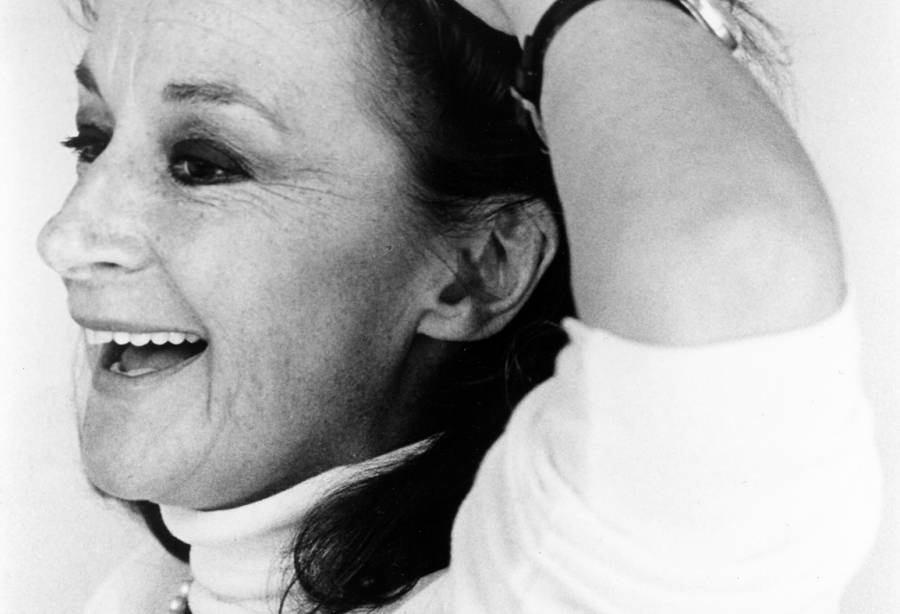Zoe Caldwell, a Tony winner for Slapstick Tragedy, The Prime of Miss Jean Brodie, Medea, and Master Class, died on Feb. 16. She was 86.
How does a playwright thank an actress who has been a muse since his first encounter with her unparalleled brilliance? If you’re smart, you write a play for her. If you’re lucky, she agrees to do it.
In Zoe Caldwell’s case I was both. I believe I have had a rendezvous with writing these insubstantial words of tribute ever since.
Zoe Caldwell, Australia’s greatest gift to the theatre, has left us after a lifetime of service to eight shows a week. It was a career spent entirely on the boards: unamplified, unafraid, unforgettable. One acting partner described her as a force of nature. Another said they were afraid of being blown off the stage by the sheer force of her eyes looking into theirs.
I saw her for the first time from my student’s perch in the balcony of the Royal Shakespeare Theatre in Stratford-upon-Avon. It was a Saturday matinee in August 1959. She was unknown to most of the audience. Her acting partner, Dame Edith Evans, was not. The play was Shakespeare’s All’s Well That Ends Well, which was almost as little known at the time as the young actress playing Helena. The production was by Sir Tyrone Guthrie, and it was bold and brilliant. It returned the play to its rightful place in the canon, made a star of Zoe Caldwell, and proved once and for all that no one would ever blow Dame Edith off the stage. Indeed, their scenes together were master classes in one generation graciously showing the next how it’s done while the other rose to the occasion and then some. There is no animal like a theatre animal, and Zoe was a colt that afternoon. There was no stopping her.
I wish I could describe her performance in more detail, but I don’t have that sort of memory. What I do remember is more visceral. The way she could hold a stage—even then she owned it. Her walk was more of a prowl, a lioness looking for prey. It certainly wasn’t casual. And, wonder of wonders, she could stand still for minutes at a time without a single fidget. Do they teach things like that, or are they intuitive to a theatre animal?
And then there was the sound of that voice, a cello that could sound like an entire string section when necessary. A voice that could be loving and gentle, yet heard in the furthest reaches of the theatre. A voice that could be seductive and just as quickly turn harsh. A voice for every character and every emotion they were feeling. A voice. When was the last time you heard a voice like hers?
I came back to New York with news of my discovery. Shortly after, the Guthrie Theater in Minneapolis opened, and I saw her in Molière, Chekhov, and Shakespeare. Every performance was definitive in my opinion. My next “sighting” was at the Broadway Theatre in New York when she covered Anne Bancroft in The Devils. I had a friend in the company, James Coco, who would tell me when Zoe was going on. “The understudy is playing tonight,” the box office cautioned me. “I know,” I said and slid my credit card across his till at least three times.
Zoe played the part exactly as the playwright, John Whiting, conceived her: ugly, deformed, a vile discard of the human race. It took courage to appear so hideous to an audience, but by the final curtain we were profoundly touched by how love had transfigured this woman of God into a devil. She got our sympathy by not asking for it.
The rest of her career was one triumph after another. She worked Off-Broadway too, if the material challenged her. She was never hung up on Tony Awards. Still, she happened to win four. She went where the good parts were. It was an exemplary career. At the same time, she fell in love with Broadway producer Robert Whitehead and they raised two terrific boys. Terrific was one of her favorite words. I wish you could hear how she bit into it and spit it out. “Terrific.”
I collaborated with my muse twice, on A Perfect Ganesh and Master Class. I “heard” her in all the plays that were written before them and after them, but then I hear Zoe reading everything. I “hear” Zoe reading aloud these words as I type them and I have this fantasy:
The phone rings. I answer. “Hello.”
“Terrence, it’s Zoe.”
It’s then I know my life in the theatre has been a good one and that I am blessed in my collaborators. That inimitable voice, stilled forever. Not in my mind’s eye, Horatio, not in my mind’s eye.
Terrence McNally is a playwright who won Tonys for Love! Valour! Compassion! and Master Class.


